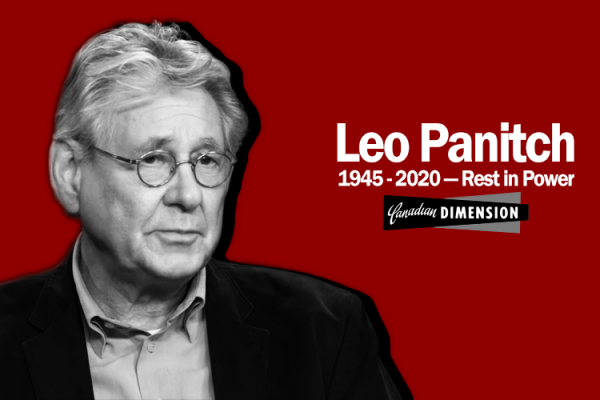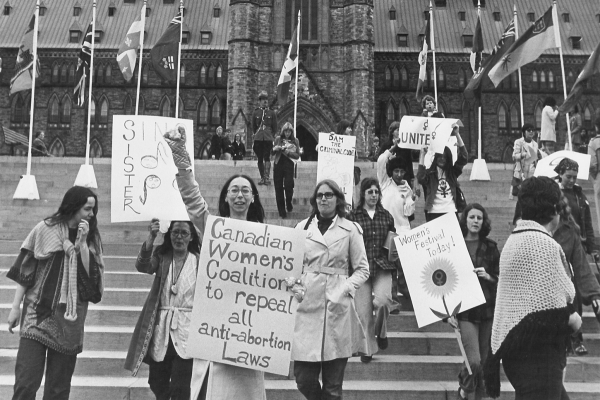Cheri DiNovo reflects on life as a queer evangelist
New book a testament to the ability of the powerless to advance struggle for social change

Cheri DiNovo is a well-known figure among activists, including the queer community, progressive religious groups, and socialists in Toronto. This autobiographical book is a remarkable story of transformation, a perspective on challenging church and state (both from within and from without) and coming away victorious after a life of “speaking truth to power.”
In The Queer Evangelist, released last April, DiNovo describes how, in her youth, she was both street-involved and drug-involved. As a bisexual woman who had struggled with trauma, she explores the fact that becoming an ordained minister and, eventually, a provincial law-maker may have been thought of as unusual turns of events. It would appear, however, that entering the corridors of power may actually have been a logical progression. Coming in as an outsider made her more tenacious as a fighter for the powerless.
As a young person, DiNovo was quite active in left politics. She joined a Trotskyist group in Toronto in a desire to effect political change. She ended up moving to New York City to help build the organization there. Even though she was firmly committed to her group, she called out its latent racism, antisemitism, and homophobia. This book is remarkable for DiNovo’s willingness to address the need for change, even from within the organizations and groups that she has been involved in, although her critical spirit may not be appreciated by those in her firing line.
Before Ontario law was changed to allow same-sex marriage, DiNovo, in her capacity as a United Church minister, officiated at the first such wedding, having discovered what may have been a loophole in marital law. Historically, churches performed their own weddings without state involvement. This was done by announcing the coming wedding, often in a church bulletin or other similar publication. It was called the “publication of the banns” of marriage. Eventually, the state began the process of using marriage licences for both secular and religious weddings. In turn, most people began to seek marriage licences in order to officially seal their weddings.
What most people don’t realize is that, even today, a marriage licence is not mandatory in Ontario. One can still be married in a church without a licence. Several queer religious officiants used this as a loophole to legally marry same sex couples before the law was changed to permit such weddings through the provincial licensing process. Thus, by “publishing the banns of marriage” in her church, DiNovo was able to marry a lesbian couple without needing to obtain a marriage licence. This set off a firestorm of controversy. The provincial government threatened to take away her licence to perform marriages. DiNovo notes her disappointment that the United Church of Canada, progressive as it is, did not come to her aid during this conflict.
It was when she entered electoral politics, however, that DiNovo earned her most public profile. As a member of the Ontario legislature for four terms, one of her claims to fame is having had more private members bills passed than any other legislator in Ontario history. Of particular note, “Toby’s Law” added “gender identity” and “gender expression” to the Ontario Human Rights Code as prohibited grounds of discrimination. This represented a sea change for the trans community. Despite being a NDP MPP, she called out the party for being too centrist, and for often being “outflanked on the left” by the Liberal party. After serving as an MPP for 11 years, she returned to church ministry. She now is the minister of Trinity-St. Paul’s in Toronto.
DiNovo does not spare the queer community or the feminist movement from her critical eye. For example, she observes that bisexual and trans people are often excluded from their communities of belonging, and she also calls out the so-called TERF (trans-exclusionary radical feminist) tendency within feminism that does not view trans women as women, rightly describing it as a right-wing approach.
As a self-identified socialist, DiNovo addresses the age-old question of “reform or revolution.” She claims that many socialists and communists hold that revolution is the only way to achieve social justice and the emancipation of the global proletariat. She also argues, quite rightly, that capitalism cannot be reformed into some better type of system: socialism must replace capitalism, both for social justice, and for the planet.
How should this change occur? Dinovo argues that “reform or revolution” is a false dichotomy and that her life has shown that people need to fight for both. While changes are made with a view to overcoming capitalism, it is still possible to fight for improvements in peoples’ lives along the way. She maintains that a strong extra parliamentary movement is needed to propel those in power to make change, and she argues that her track record in the Ontario legislature shows that parliaments are in fact able to effect change if they are pressured to make it happen. While leftists may disagree with some aspects o her analysis, it is clear that her contribution to ministry and elected life has had a positive impact on the lives of many powerless people in Ontario.
The Queer Evangelist is well-written, a pleasure to read, and a clear testament to the ability of the powerless to advance the struggle for social change. For any activist or person struggling with addiction, homelessness, and oppression, it is an inspiring read.
Brian Major works as a peer support specialist in a community mental health agency. He holds an MA in sociology.










